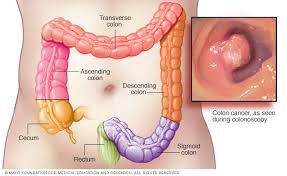Bowel cancer, also known as colorectal cancer, is one of the most common cancers worldwide. Early detection and awareness of its symptoms can significantly improve outcomes. Among the various concerns people might have, unusual stomach noises (borborygmi) often lead to questions: Could these noises be a sign of bowel cancer?
In this blog, we’ll explore the connection between bowel cancer and stomach noises, when to be concerned, and how to differentiate between harmless digestive sounds and potential red flags.
What Are Stomach Noises?
Stomach noises are the result of normal digestive processes. These sounds occur when the muscles of your digestive system contract and move food, liquid, or gas through the stomach and intestines. Known medically as borborygmi, these noises are typically harmless and often occur:
- When you’re hungry, as your stomach prepares for food.
- After eating, as digestion begins.
- During digestion of high-fiber or gas-producing foods like beans or broccoli.
However, persistent or unusual sounds accompanied by other symptoms might warrant medical attention.
Bowel Cancer: An Overview
Bowel cancer develops in the colon or rectum and may cause a range of symptoms, including:
- Changes in bowel habits (diarrhea or constipation).
- Blood in stool or rectal bleeding.
- Unexplained weight loss.
- Persistent abdominal pain or cramping.
- Fatigue or weakness.
Stomach noises alone are not typically a symptom of bowel cancer, but changes in bowel habits or digestion combined with unusual sounds might indicate an underlying issue.
When to Be Concerned About Stomach Noises
While most stomach noises are normal, the following scenarios may indicate something more serious:
- Persistent or Unusual Noises with Pain
If gurgling or rumbling sounds are accompanied by consistent abdominal pain or cramping, it could point to inflammation or a blockage in the intestines. - Accompanied by Changes in Bowel Habits
- Frequent diarrhea or constipation.
- Pencil-thin stools or a sense of incomplete evacuation.
- Blood in Stool
Blood, whether visible or detected through stool tests, is a critical warning sign of bowel cancer. - Unexplained Weight Loss
A significant drop in weight without changes to your diet or activity level might signal an issue with your digestive system. - Persistent Symptoms Despite Dietary Adjustments
If you’ve tried eliminating gas-producing foods or managing stress and symptoms persist, consult a doctor.
How Bowel Cancer Can Affect Digestion
Bowel cancer can disrupt the digestive process, leading to:
- Partial or Complete Blockages: Tumors may obstruct the bowel, causing trapped gas and unusual gurgling sounds.
- Inflammation: This may slow digestion or cause discomfort.
- Malabsorption: Cancer affecting the intestine might impair nutrient absorption, leading to bloating or other digestive symptoms.
When to See a Doctor
If you notice persistent stomach noises along with any of the following symptoms, it’s important to seek medical advice:
- Persistent bloating or a feeling of fullness.
- Chronic constipation or diarrhea.
- Unexplained fatigue or anemia.
- Family history of bowel cancer.
Screening and Diagnosis
Screening is key to detecting bowel cancer early. Common methods include:
- Colonoscopy: A detailed examination of the colon and rectum.
- Fecal Occult Blood Test (FOBT): Detects hidden blood in the stool.
- Imaging Tests: Such as CT colonography for a clearer view.
Early diagnosis not only improves survival rates but also allows for more effective treatments.
Preventing Bowel Cancer and Maintaining Digestive Health
Here are some steps to keep your digestive system healthy and reduce the risk of bowel cancer:
- Adopt a Fiber-Rich Diet: Include fruits, vegetables, and whole grains.
- Stay Hydrated: Drink plenty of water to support digestion.
- Exercise Regularly: Physical activity helps maintain bowel regularity.
- Limit Red and Processed Meats: These are linked to a higher risk of bowel cancer.
- Don’t Ignore Symptoms: Promptly address persistent changes in bowel habits.
Final Thoughts
Stomach noises are a natural part of digestion and, in most cases, nothing to worry about. However, if these sounds are paired with concerning symptoms such as blood in the stool, changes in bowel habits, or unexplained weight loss, it’s essential to consult a healthcare professional.
Awareness and regular screenings can make a significant difference in managing bowel cancer risk. Pay attention to your body, and don’t hesitate to seek help if something feels off.


